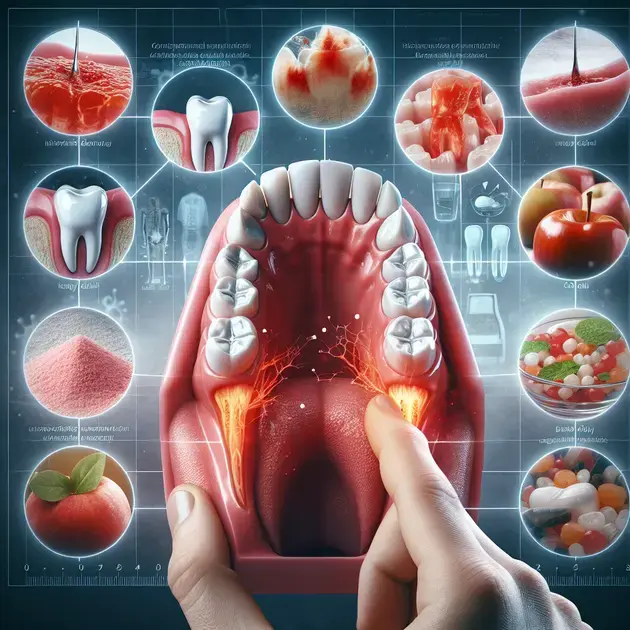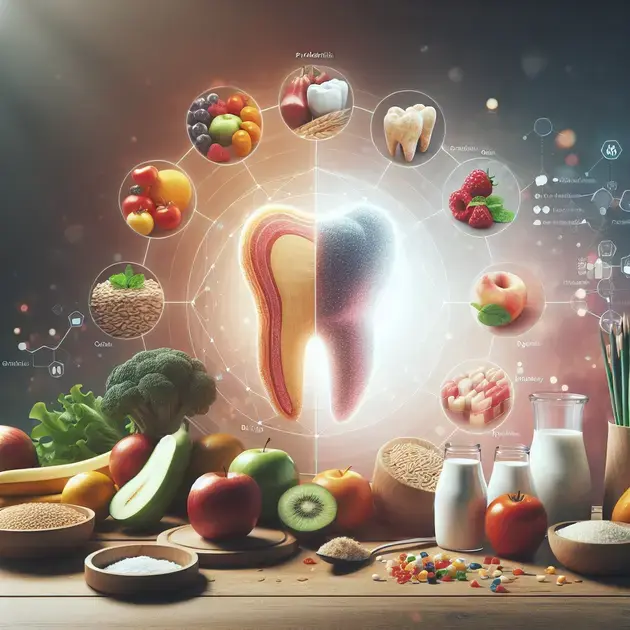When it comes to managing periodontitis, medication plays a crucial role in addressing this common dental condition. With advancements in medical research and technology, the use of medication has become increasingly important in the treatment of periodontitis.
From antibiotics to antimicrobial mouthwashes, various medications are now available to help control the progress of periodontitis and alleviate symptoms, providing patients with more effective and targeted treatment options.

The Importance of Medication in Managing Periodontitis
Periodontitis is a serious gum infection that can lead to tooth loss if left untreated. Medication plays a crucial role in managing periodontitis by helping to control the infection, reduce inflammation, and prevent further damage to the gums and teeth.
One important aspect of medication in managing periodontitis is the use of antimicrobial agents to target and eliminate the bacteria causing the infection. These medications can be prescribed in the form of mouth rinses, gels, or oral tablets to effectively combat the bacteria in the gums.
To effectively manage periodontitis with medication, it is essential to follow your dentist’s recommendations and complete the full course of treatment. Skipping doses or stopping medication prematurely can lead to the recurrence of the infection and worsen the condition of your gums.
Monitoring the progress of your periodontal treatment with regular dental check-ups is also important. Your dentist can assess the effectiveness of the medication and make any necessary adjustments to ensure that your gums are healing properly and that the infection is under control.
By understanding the importance of medication in managing periodontitis and actively following your treatment plan, you can work towards improving the health of your gums and preventing the progression of this serious dental condition.
Different Types of Medications for Treating Periodontitis
There are several types of medications used for treating periodontitis, each with its own specific benefits and applications. One common type of medication is antibiotics, which are prescribed to combat the bacterial infection in the gums and promote healing.
Antiseptic mouth rinses are another type of medication that can help reduce plaque and bacteria in the mouth, effectively preventing and treating periodontitis. These rinses can be used in conjunction with regular brushing and flossing to enhance oral hygiene.
In more severe cases of periodontitis, your dentist may recommend the use of antimicrobial gels or chips that are placed directly into the gum pockets. These medications help target the infection at the site of the inflammation and promote healing of the gums.
In some situations, anti-inflammatory medications may be prescribed to reduce swelling and discomfort associated with periodontitis. These medications can help alleviate pain and improve the overall comfort of the patient during treatment.
It is important to work closely with your dentist to determine the most suitable type of medication for your individual case of periodontitis and to follow their recommendations for proper usage and dosage to achieve optimal results.
Maximizing the Effectiveness of Medications for Periodontitis
To maximize the effectiveness of medications for periodontitis, it is essential to adhere to a consistent oral hygiene routine that includes regular brushing, flossing, and mouth rinsing. Proper oral care can help enhance the action of medications and promote healing of the gums.
In addition to following your dentist’s recommendations for medication usage, adopting a healthy lifestyle with a balanced diet and avoiding tobacco products can further support the effectiveness of treatment for periodontitis. A nutritious diet and lifestyle can help strengthen the immune system and aid in the healing process.
It is also important to schedule regular dental check-ups and cleanings to monitor the progress of your periodontal treatment and ensure that any issues are addressed promptly. Your dentist can provide valuable guidance on how to optimize the effectiveness of your medications and maintain good oral health.
Stay informed about the latest advancements in periodontal treatment and medication options by consulting reputable dental websites and resources. Being proactive about your oral health and treatment plan can help maximize the benefits of medications and improve the overall condition of your gums.
By taking a proactive approach to managing periodontitis with medications and incorporating healthy oral habits into your daily routine, you can work towards achieving optimal results and maintaining good oral health in the long term.

**Understanding the Impact of Nutrition on Periodontitis Management**
Nutrition’s Role in Periodontitis
Nutrition plays a vital role in periodontitis management as a diet rich in essential nutrients can help strengthen the immune system, reduce inflammation, and promote overall oral health. Consuming foods high in antioxidants, such as fruits and vegetables, can help combat the oxidative stress that contributes to periodontal disease. Additionally, incorporating foods rich in omega-3 fatty acids, such as fish and nuts, can help reduce inflammation in the gums and support tissue healing.
On the other hand, a diet high in sugar, refined carbohydrates, and processed foods can fuel the growth of harmful bacteria in the mouth, leading to an increased risk of periodontitis. It is important for individuals with periodontal disease to limit their intake of these foods and focus on a balanced diet that supports gum health.
Furthermore, staying hydrated by drinking plenty of water is crucial for maintaining saliva flow, which helps wash away food particles and bacteria that can contribute to gum disease. Avoiding sugary beverages and opting for water or unsweetened teas can help promote better oral health and support periodontitis management.
In conclusion, nutrition plays a significant role in periodontitis management, and making healthy dietary choices can help support overall gum health and reduce the risk of complications associated with this condition.
Impacts of Vitamins and Minerals
Vitamins and minerals also play a crucial role in periodontitis management, as deficiencies in key nutrients can weaken the immune system and impair the body’s ability to fight off infections. Vitamin C, for example, is essential for collagen production and wound healing, making it an important nutrient for maintaining gum health.
Similarly, vitamin D plays a role in regulating inflammation and supporting immune function, which are both important for periodontitis management. Foods rich in vitamin D, such as fatty fish and fortified dairy products, can help support gum health and reduce the risk of periodontal disease.
Other important nutrients for periodontitis management include zinc, which supports immune function, and calcium, which is essential for maintaining strong teeth and bones. By ensuring adequate intake of these vitamins and minerals through a balanced diet or supplementation if necessary, individuals can support their periodontal health and improve outcomes in the management of this condition.
Overall, paying attention to the role of vitamins and minerals in periodontitis management can help individuals make informed dietary choices that support their oral health and overall well-being.
**
Conclusion
**
Understanding the impact of nutrition on periodontitis management is crucial for individuals seeking to maintain optimal oral health. A diet rich in essential nutrients, such as antioxidants found in fruits and vegetables, can play a significant role in strengthening the immune system, reducing inflammation, and supporting overall gum health. By incorporating foods high in omega-3 fatty acids, like fish and nuts, individuals can further aid in reducing inflammation in the gums and promoting tissue healing.
Conversely, the consumption of a diet high in sugar, refined carbohydrates, and processed foods can exacerbate the growth of harmful bacteria in the mouth, leading to an increased risk of periodontitis. It is imperative for those with periodontal disease to limit their intake of these detrimental foods and instead focus on a balanced diet that fosters gum health. Furthermore, staying hydrated by drinking an adequate amount of water is essential for maintaining saliva flow, which aids in washing away food particles and bacteria that contribute to gum disease.
In conclusion, the significant impact of nutrition on periodontitis management cannot be overlooked. Making informed dietary choices that prioritize essential vitamins and minerals, such as vitamin C for collagen production, vitamin D for inflammation regulation, zinc for immune support, and calcium for maintaining strong teeth and bones, is paramount. By ensuring a proper intake of these nutrients through a well-rounded diet or supplementation if necessary, individuals can effectively support their periodontal health, reduce the risk of complications, and improve outcomes in the management of periodontitis. Overall, the emphasis on the role of nutrition in oral health is vital for individuals to make proactive choices that benefit their overall well-being.



